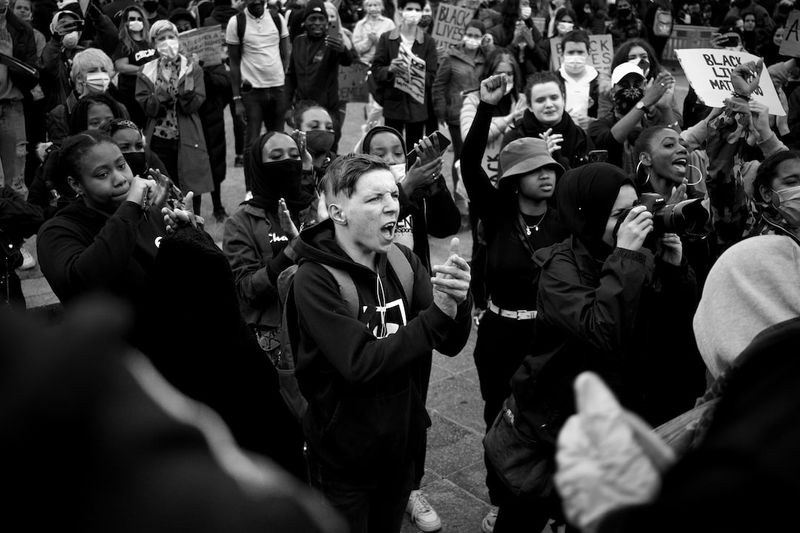Economy | Inequality Can BRICS end ‘apartheid’ against the Global South?
Inequality and Reshaping Global Governance
As the BRICS summit convenes in Johannesburg, the delegates from the world’s major emerging economies, along with leaders from the developing world, are grappling with an important question: Can global governance be reshaped to give the majority of the world’s population an equal voice in decision-making? Anil Sooklal, South Africa’s ambassador to BRICS, argues that the global South, which accounts for 85 percent of the global population, is marginalized in global decision-making while Western nations continue to dominate political and financial institutions. He compares this situation to apartheid in South Africa, where the minority decided for the majority. Sooklal calls for the reform of the current global governance architecture to create a more equitable and inclusive global community.
The Role of BRICS
The BRICS grouping, consisting of Brazil, Russia, India, China, and South Africa, was formed in 2009 to highlight the economic potential of these emerging economies. However, the grouping has faced skepticism regarding its relevance and achievements. Critics argue that BRICS has produced little tangible results since its inception and has primarily focused on future intentions rather than practical steps. Nevertheless, analysts believe that there has been a shift in recent months, with a more serious effort to transform BRICS into a more effective organization.
Key Issues on the Agenda
The BRICS summit will cover various key issues, including alternative currency options to challenge the dominance of the dollar and the potential expansion of the grouping to include other countries. However, reaching an agreement on these issues may be challenging due to the different and competing interests of the member countries. There are also discussions surrounding the possibility of moving beyond a financial system dominated by the dollar and exploring more trade in their own currencies. Additionally, there is debate within the BRICS countries regarding expansion, with Russia and China in favor, while Brazil and India remain more ambivalent due to their desire to maintain strong relations with the West.
Africa and BRICS
The theme of this year’s summit is “BRICS and Africa: Partnership for Mutually Accelerated Growth, Sustainable Development, and Inclusive Multilateralism.” South Africa’s President Cyril Ramaphosa emphasized the country’s commitment to championing Africa’s interests within BRICS and building a partnership between BRICS and Africa to unlock opportunities for increased trade, investment, and infrastructure development. Over 40 leaders from emerging economies, including countries like Saudi Arabia, Iran, Argentina, Indonesia, and Egypt, have expressed interest in joining the bloc. However, there is division among BRICS members on the issue of expansion, with Russia and China being more supportive, while Brazil and India are more cautious.
Successes and Challenges
Analysts have differing views on the accomplishments and potential of the BRICS grouping. While there are tangible successes such as the establishment of the New Development Bank and the contingent reserve arrangement, which support emerging markets, there are also challenges. The tensions between India and China, for example, could limit the group’s potential. Moreover, expanding the grouping too quickly could introduce further complications among members.
Editorial and Philosophical Discussion
The BRICS summit raises important questions about global inequality and the need for a more equitable international order. It highlights the frustration felt by many in the global South who believe that decisions affecting their future are still predominantly made by a select few in the West. The call for reform and transformation of global governance is a plea for fairness and justice in decision-making processes.
However, achieving these goals is not without challenges. The diverse interests and competing agendas of the member countries may hinder collective action and decision-making within BRICS. The expansion of the grouping also poses dilemmas, as different nations have varying levels of commitment and concerns about maintaining relationships with Western nations.
Additionally, the debate over alternative currencies and moving away from the dominance of the dollar highlights the complexities of reshaping the global financial system. While there is a desire to challenge the existing order, experts argue that creating a new currency or system may be unrealistic or even counterproductive.
Nevertheless, the importance of BRICS as a platform for amplifying the voices and interests of the global South cannot be underestimated. It provides an opportunity for emerging economies to come together and present a united front in global decision-making processes. By doing so, they may be more effective in influencing the course of international affairs and addressing the persistent inequalities in the global order.
Advice and Recommendations
Given the challenges and complexities involved, it is essential for the leaders and delegates attending the BRICS summit to approach discussions with open minds and a willingness to find common ground. Balancing national interests with the collective aspirations of the global South is crucial for the success of BRICS as a platform for change.
Furthermore, it is imperative to engage other nations and stakeholders who are interested in joining BRICS or collaborating with the grouping. This broader engagement could enhance the group’s influence and provide a more comprehensive understanding of the complex global landscape.
Finally, while BRICS is an important forum, it is also essential to explore other avenues for promoting the interests of the global South. The G77 in the UN system and the G24 in the IMF system, as mentioned by some analysts, may offer alternative platforms for amplifying the voice of developing nations.
In conclusion, the BRICS summit represents an opportunity to address the inequalities embedded in the current global governance architecture and create a more inclusive and equitable international order. While challenges exist, the unity and collective action of the global South, represented by BRICS, can play a crucial role in reshaping the global agenda and ensuring a fairer future for all nations.

<< photo by Sushil Nash >>
The image is for illustrative purposes only and does not depict the actual situation.
You might want to read !
- Finding Unity: South Africa and China Align on Brics Expansion
- Escape from the Inferno: Mass Exodus as Greece’s Rhodes Island Burns
- Editorial Exploration: Unveiling the Exciting Announcements for Amazon Prime Day 2023
Title: “Revamped Prime Day 2023 on the Horizon: Early Apple Deals and Dates Revealed”
- Editorial Exploration: The potential for peace talks in the ongoing Ukraine war
Title: “Seeking Solutions: Exploring Potential for Peace Talks in the Ongoing Ukraine War”
- Path to Peace: Putin Signals Willingness to Engage in Talks with Ukraine
- “Editorial Exploration: Learning from Putin’s Barbarism – A Call for NATO to Adapt”




